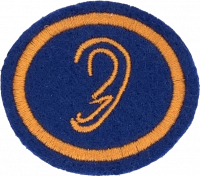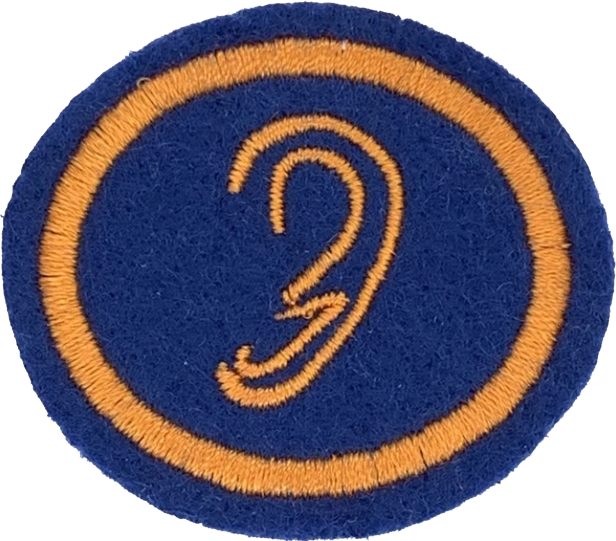Difference between revisions of "AY Honors/Hearing"
m (add to Wiki_Test_Subjects category) |
|||
| Line 6: | Line 6: | ||
|insignia=Hearing AY Honour.png | |insignia=Hearing AY Honour.png | ||
|insignia_source=British Union | |insignia_source=British Union | ||
| − | }} | + | }} |
== {{Localize|Overview}}== | == {{Localize|Overview}}== | ||
Latest revision as of 13:29, 20 December 2022
Overview
The Challenging Part
The most challenging requirement of this honor is probably this:
2. Activity 1 – Make a model eardrum (Also known as the tympanic membrane).
Be sure to record your finished product on camera.
MAKE A MODEL EARDRUM (Also known as the tympanic membrane)
You will need: Plastic Wrap (cling film), container with wide opening, uncooked rice (or any other small grain), tin cookie sheet. This activity will help you to understand how sound travels through the air. Just stretch the piece of plastic wrap over the large container or pot. Make sure the plastic wrap is stretched tightly over the container. The plastic represents the eardrum. Place about 20-30 grains of uncooked rice or grains on top of the plastic wrap. Now you need a noise maker, a tin cookie sheet or baking tray works well. Hold the cookie sheet close to the plastic sheet to create a “BIG BANG” noise and watch the rice grains jump. The “big bang” produces sound waves (changes in air pressure) that cause the plastic sheet to vibrate which causes the rice grains to move. Sound waves vibrate the eardrum in much the same way.



